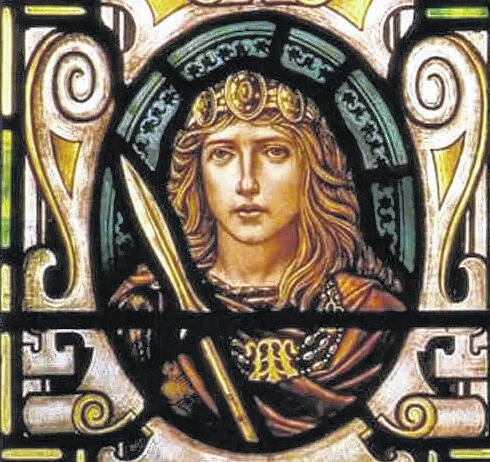Boudicca, who’s name means “Bringer of Victory,” was an ancient British Celtic queen who died around 60 CE, after leading her people in a large-scale revolt against Roman rule.
Yet, her story is not often remembered when recollecting tales of great women contributors to the fabric of history.
Prior to becoming the “Warrior Queen” of legend, Boudicca met and married her husband, Prasutagus, who was king of the Iceni as a subject under Roman suzerainty [or the right of a country to partly control another].
When he died in 60 CE without a male heir, he left his wealth to his two daughters and to the emperor Nero, foolishly trusting him to protect his family.
Instead of protecting the family Prasutagus left behind, Rome annexed his kingdom, humiliated his family, and plundered from the remaining leaders of the Iceni kingdom.
Without her husband’s protection, Boudicca had to stand by helplessly as she was whipped by Roman soldiers, her daughter’s were violated and her people’s tribal lands stolen.
Seething with rage, she went to the nearby tribes and amassed a rebellion throughout the land.
Tacitus, a Roman historian, writes Boudicca’s army massacred 70,000 Romans and pro-Roman Britons and destroyed the Roman 9th Legion.
As the leader of the rebellion against Rome, Boudicca’s army is believed to have killed 80,000 Romans and lit several city-wide fires — one of which caused the city of London to burn.
Boudicca is quoted by Tacitus as having said, “Nothing is safe from Roman pride and arrogance. They will deface the sacred and will deflower our virgins. Win the battle or perish, that is what I, a woman, will do.”
Fed up, Rome launched a massive attack against Boudicca and her forces. It is unknown where this final battle occurred, but the outcome is certain — Boudicca and her army lost.
Her fate is lost to history, with some historians theorizing she may have returned home and took poison to avoid Roman capture.
Thanks to Queen Victoria of England taking a special interest in her story, Boudicca has not been forgotten. A Celtic folk hero, Boudicca is featured in many songs, paintings and sculptures.
To this day, she is revered by the British people for the rebellion she led against Rome and the bravery she showed in standing up for her people.

